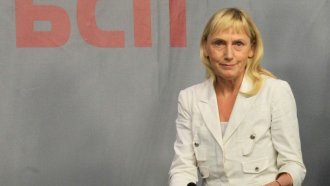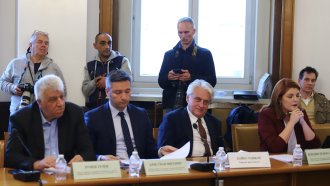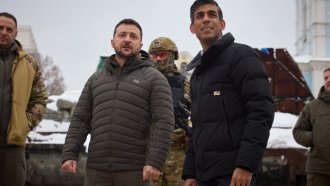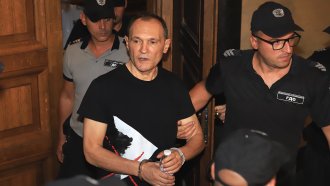Commentary:
Prosecutor’s Office new season reboots: bottle episodes and old plots
As of late the Bulgarian Prosecutor’s Office have systematically managed to assume center stage at prime time news by announcing grand investigations for large scale tax fraud and corruption one after the other. The institution notoriously represents the foremost powerhouse of the Bulgarian state. This is where all the important decisions are made and where the final sanctions for moving around the chunks of political control is produced.
The curious structure of the Bulgarian Prosecutor’s Office is a source of astonishment in the eyes of the country’s EU allies: The chief prosecutor is practically unaccountable (as provided by law, not as a result of corrupting the post) to any other power or indeed the people. As one former Bulgarian chief prosecutor famously said once: only God is above me. The Venice Commission concluded in 2017 that the chief prosecutor is “essentially immune from criminal prosecution and is virtually irremovable by means of impeachment for other misconduct”.
The Council of Europe has criticized on numerous occasions the fact that the chief prosecutor is unaccountable, untouchable and concentrates the whole prosecutor power in the state. Moreover, the prosecution in Bulgaria has a far reach beyond the criminal law sphere as well, and almost unrestricted provisions to enter private premises and so on, virtually anything “if “in the interest of legality”. Changing and restricting this vast scope of power significantly is one of the key recommendations by the Venice Commission to Bulgaria regarding the rule of law.
Given that the Prosecutor’s Office is vastly powerful in a country where large corruption schemes are a public secret, most of which do not go far beyond investigative journalists’ reports, that is – fail to get prosecuted, both the actions and inactions by the prosecutors can speak volumes, beside – and compared to – the official statements.
Lately the Prosecutor’s Office has been busy with press conferences, announcing different ‘grand’ investigations for tax fraud – mainly – of individuals and firms, whose shady ways of acquiring wealth one way or another has been known to have had state protection. Now suddenly some very well-known names are being arrested and prosecuted on an almost weekly basis for millions in tax and other type of fraud.
One of the flashiest operations these past weeks has to do with the famous Banev family, who privatized а plant for chorine products back in 1998 and which declared bankruptcy in 2012. As far as their way of life and wealth, it is widespread and has never been downplayed by Banev themselves. Their closeness to those in power has never been a source of conspiracy or secret. However, now it seems this wealth and this family’s ‘shady’ ways are first, not old news and second – cause outrage on the part of the state.
So much so that the Ministry of Interior released photos of Banev’s private home: to showcase their wealth; not unprecedented in Bulgaria but still quite unacceptable and a violation of Banev’s civil rights according to experts, as these photos are of no direct consequence to the case. Clearly, among other things, a PR stunt. OF course, if crimes have been committed and the prosecutors are committed to prove them, all the better. But the style and the timing, 20 years later, leaves room for additional motives beside what is in the indictments.
One of the go-to enemies of most governments and particularly of Movements of Rights and Freedoms (DPS) MP and media mogul Delyan Peevski, Ivo Prokopiev, publisher of Capital Weekly and Dnevnik.bg, outlets, critical of the government is also faces charges of fraud and money laundering in connection to the privatization and subsequent sell of the mine Karolin.
There have been at least four other operations over the past two months.
Knowing, as mentioned above, that actions on the part of the prosecution have a double meaning as triggering investigations, charges and so on are not purely a matter of impartial procedure, the question of why now gains some central gravity in the plot. All of the above mentioned stories are old news. There must be a reason why they are all being rebooted now, one after the other.
And then came the latest prime-time blockbuster.
On October 29 the Special Prosecutor’s Office detained 20 people from the State Agency for Bulgarians Abroad on charges of a corruptive scheme related to granting Bulgarian citizenship for 5000 euro a piece. According to investigators, the group realized massive profits and managed to issue an average of 30 false documents per week. Among the detained are the chief of the agency, Petar Haralampiev and the chief administrative secretary as well.
Haralampiev is appointed by one of the three leaders of the right-wing nationalist coalition partner United Patriots. The prosecution points to Hralampiev as the leader of the criminal enterprise.
But this, too, is very old news. Back in 2014 the Supreme Administrative Prosecutor’s Office uncovered colossal violations in the agency related to falsified procedures for granting Bulgarian citizenship, which went up to the thousands for 2014 alone. The probe reviled that 90% of the documentation for approved citizenships for the previous three years had had violations as well and should not have been approved.
The agency has long been under the control of Krassimir Karakachanov’s party, VMRO. VMRO, as mentioned, is one of the three far right-wing parties making up the United Patriots, GERB’s coalition partner. Krassimir Karakachanov is also vice PM in this government and the Minister of Defense.
Karakachanov was quick to distance himself and his party from Haralampiev but then the former director of the directorate for Bulgarian citizenship at the Ministry of Justice Katya Mateva said in an interview for bTV that not only the practice of selling citizenship is extremely well-known but VMRO is at the heart of the operations, and she could prove it.
The extent in VMRO’s involvement is yet to be established in precise terms but it is safe to assume there is one.
As this is, again, a very old story with more than enough evidence to back it up and prosecute it, it has for some reason till not stayed dormant. The question again is the same: why now.
One possible way of looking at it is to presume some shift in the balance of power within the government is taking place. This theory seems especially potent as to the case with VMRO.
Another individual in the United Patriots group has been at the center of the public’s attention for the last two weeks, before this scandal emerged. Vice PM Valeri Simeonov’s obnoxious comments that the protesting parents of children with disabilities are “a group of loudmouthed women with supposedly sick children” received enormous backlash and demands for his resignation. Long story short, PM Boyko Borissov in effect confessed that he is dependent on Simeonov and his hands are tied when it comes to anything they do, in order to keep the coalition stable. Valeri Simeonov did not and likely will not resign, the protests continue, daily.
Arguably this aspect of the whole story was not the leading feature over the course of the scandal, and may be rightfully so, given the focus was on the vice PM himself. But in itself the revelation is astonishing: PM Boyko Borissov outright declared he cannot or will not touch anyone in the coalition, because this is the way to keep it together. That is, in order for himself to stay in power.
That is so regardless of the statement itself, but given the events of this past week it does beg the question whether this might be a comeback for the apparent embarrassment of having to admit his weakness, and a way for Borissov to re-establish or reaffirm his power position. And if so, what does the next episode hold in store?
This remains to be seen as the plot will likely thicken over the next week. But if anything is really worth keeping an eye out for amid this whole newly discovered initiative of the Prosecutor’s Office’s to seemingly do its job, it is the question of who will it benefit at the end, who will be left out its scope, and who will sustain true damage.
Consecutive murder of a women by her partner, who also killed their small child. But all is well as we saved ourselves from the evil Istanbul Convention
It was the scariest document there was. It was designed to destroy the traditional Bulgarian family values. It introduced the third gender and attacked the very heart of what we all hold most dear.
First it was the far-right nationalists, who jumped at the Istanbul Convention immediately after talks began on its ratification. The right-wingers made sure to stir up fears of the third gender and the “gay/gender ideology” (?!) within a society, notorious for its conservative and narrow-minded views. The alarm was picked up by none other than the Bulgarian Socialist Party.
At the time it seemed GERB was caught in-between: both coalition partners and opposition opposed heavily the convention. Media outlets owned or close to DPS MP and media mogul Delyan Peevski took it upon themselves to drown the conversation with conspiracy theories, which caught on easily. The Bulgarian Orthodox Church also entered the discussion; a full on troll online campaign ensured the issue is fully locked.
GERB might have actually wanted to push the convention forward but the unprecedented backlash scared the largest ruling party, and it decided not to submit the convention to Parliament. Instead of taking a stance and responsibility for whatever its position might have been, citing the great public divide surrounding the convention, GERB gave it to the Constitutional Court to decide whether it contradicts the basic law of the country. The court decided it did.
BSP assured its constituency (if it even cared) that Bulgaria’s laws are fully equipped to combat and prevent crimes against women (it is not) and that where it failed, it will propose amendments to full proof it even more (it didn’t).
In fact, domestic violence is known to not even be registered by the police, and even more rarely prosecuted. As society’s tolerance for domestic violence remains high (it’s nobody’s business, it’s a private matter) victims rarely could rely on neighbors’ help in case of an attack. Only two weeks ago a famous Sofia-based lawyer was attacked in her own office by a man, trying to rape her. She managed to escape, but declared on multiple occasions that she was screaming and is sure the neighbors heard her but did not react. Which is common.
The European Social Survey has reviled striking numbers of mistrust among the Bulgarian people. An astonishing 82% of the population in 2018 said that they must be very careful towards other people. These numbers are even more drastic when the question involves people of a different social or ethnic group.
Bulgarians are severely suspicious towards to one another and this tells of a societal divide on a very basic level: not just between groups but within them as well. In such a societal structure the notion of common values and common life outside the immediate family is nothing short of exotic.
This is worth bearing in mind when trying to answer the questions both why it is almost unheard of for a witness to intervene in instances of domestic violence. It also sheds light as to why this society, as a political entity, does not understand the need to protect – namely through special (!) policies and legislation – vulnerable groups. At the very least, empathy is not possible within a context of elementary divide and non-relation between one another.
By the way, this is a perfect environment for the kind of power structures Bulgarian society has become so accustomed to, to thrive. If the people cannot consolidate, those in power are free to exploit it.
This week a 23-year-old woman was murdered in her home in Sofia by her ex-partner. They had separated the week before. The woman’s father spent some nights with her because she was afraid. The man works in a private security firm and owns a gun. After allegedly killing her he ran off with their one-year-old girl. He took a taxi outside the city and threatened the taxi driver with his gun. The taxi driver informed the police after he let them off but not before. The man (allegedly) shot the child in the head, after which he attempted suicide. The child died later in the hospital, the man’s wound was superficial and he will be fine.
He is arrested and will be prosecuted. His first hearing in court was this week where he told the judge he did not remember committing any of the crimes for which he is accused of.
Meanwhile though, according to the Bulgarian human rights watchdog, the Bulgarian Helsinki Committee this is the women killed as a result of domestic violence by former or current intimate partners is 22; three are the children killed in domestic violence. This count is for 2018 alone. This means that a woman is murdered every other week out of violence based on her gender and by a current or former partner.
But surely this all this is worth it if we’ve succeeded in clearing our legal world of any “gay/gender ideologies”.
In other news:
Former mayor of Mladost, Sofia Dessslava Ivancheva and her former deputy Bilyana Petrova to remain in jail
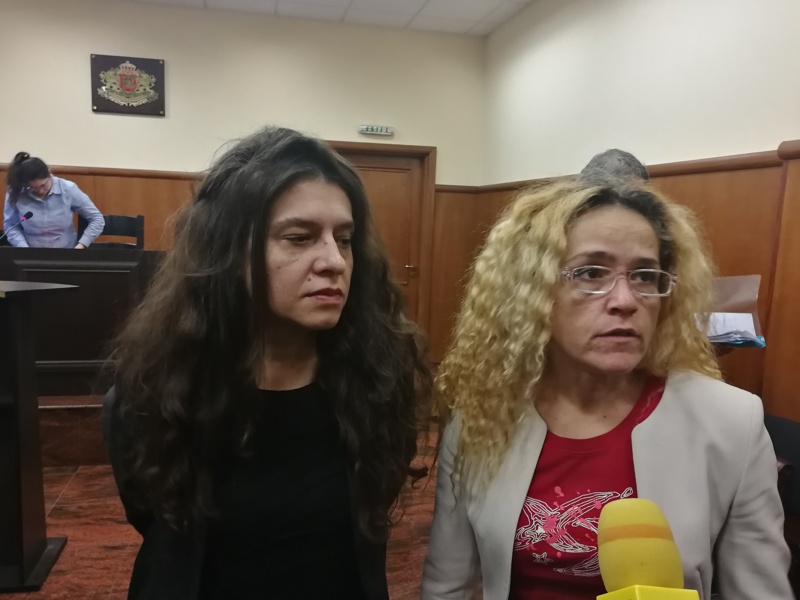
After six months in jail last week the two were released under house arrest but the prosecutors appealed the court’s decision and now the special appeals court has rejected the decision and decided to return Dessislava Ivancheva and Bilyana Petrova in jail.
Ivancheva and Petrova are accused of taking a very large bribe for processing construction permits as mayor and deputy mayor. Along with the two of them Petko Dyulgerov, who is described as the go-between in the scheme.
Ivancheva and Petrova maintain their innocence and claim they were set up by Dyulgerov and that their arrest is a part of a ploy for revenge because the two women would not allow for shady real estate construction projects to be realized in Mladost.
The two were arrested with marked bills in a spectacular show-off of an operation back in April when Ivancheva stood handcuffed and surrounded by policemen and prosecutors for seven hours in the middle of a busy intersection in the center of Sofia. The operation was over-the-top flashy which in of itself led many to suspect that the arrest is more of a PR stunt and the notion that an actual crime has been committed, especially of this scope (down payment of 70’000 euro, which would have been a less than the full bribe).
The court ordered the two to be held in jail in order to prevent potential witness tempering but as the last of the witnesses testified several weeks ago, the court decided that keeping the two in jail was no longer necessary.
Out of the witness testimonies’ none put Ivancheva or Petrova in a situation to have actually known about a bribe, talked, or plotted anything directly with one of them
The state might allow massive ski construction on Vitosha mountain
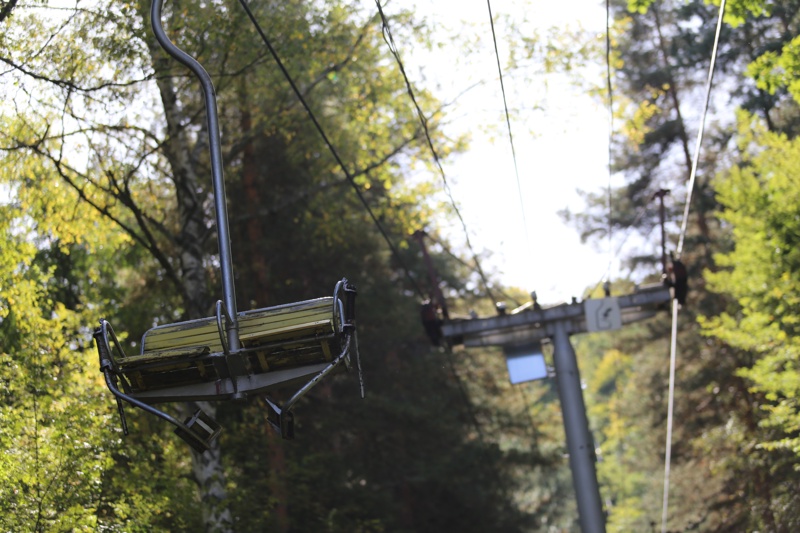
If approved, new proposals for amendments to the plan for management of Vitosha National Park would allow for massive new ski construction to take place on the territory of the national park.
The amendments would ease the procedure not only for changing the existing lifts and other ski facilities but will also allow for the construction of new ones. It will also permit the expansion of the ski zone altogether, that is, new lifts, slopes and facilities may be built well outside the current area where this type of development is already allowed.
Several weeks ago Vice PM Valeri Simeonov along with the Minister of Environment Neno Dimov promised to push forward the proposed amendments to the Council of Ministers, which has the authority to enact them. Then the two asked for the municipality of Sofia or the Ministry of Sports to prepare the official proposal for the changes.
This Wednesday several outlets reported that Krassen Kralev, the minister of sports, had sent an official letter requesting the amendments to the management plan of Vitosha National Park.
Mediapool asked the Ministry of Environment about the reports. The ministry denied to have received proposals for amendments of Vitosha’s management plan. They elaborated that Kralev had submitted the letter in question to them but that is not an official proposal for changing the management plan, and that the process calls for a different kind of submission/. The letter, according to the ministry is an account of what Kralev and his appointed work group had done in the time they have been working on the issue.
The official reason for the Ministry of Sports to be involved, and in a leading position is that the ministry owns a rope tow in the Vitosha ski area, which has been out of order for years. PM Boyko Borisov requested the ministry prepare an investment plan to renovate the rope tow. However, the intended proposals the ministry will soon officially submit go far beyond one single rope tow, they affect the whole park.
Interestingly, the workgroup working on the proposals include representatives from many institutions, agencies, ministries and the municipality of Sofia but not a single one from the protected areas’ division of the Ministry of Environment. In other words, the Ministry of Sport is championing a committee to decide the fate of a protected area, which most of Vitosha National Park is.
За честна и независима журналистика
Ще се радваме, ако ни подкрепите, за да може и занапред да разчитате на независима, професионална и честна информационно - аналитична медия.
 0 коментара
0 коментара
Екипът на Mediapool Ви уведомява, че администраторите на форума ще премахват всички мнения, съдържащи нецензурни квалификации, обиди на расова, етническа или верска основа.
Редакцията не носи отговорност за мненията, качени в Mediapool.bg от потребителите.
Коментирането под статии изисква потребителят да спазва правилата за участие във форумите на Mediapool.bg
Прочетете нашите правила за участие във форумите.
За да коментирате, трябва да влезете в профила си. Ако нямате профил, можете да се регистрирате.

